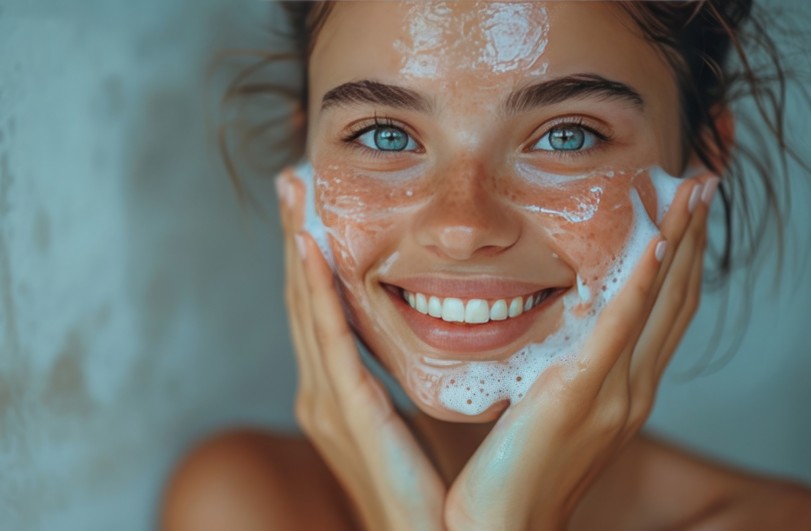
Double cleansing, which originated in Korea and has become popular worldwide, involves washing your face twice.
Advocates claim it thoroughly removes impurities, but its necessity is debated. While it's beneficial for some, it may not be essential for everyone. Experts recommend considering your skin type and needs when deciding if double cleansing is right for you.
About Double Cleansing
Double cleansing involves washing your face twice with two different types of cleansers.
The first step typically uses an oil-based cleanser or micellar water to remove makeup, sunscreen, and other oil-based impurities.
This is followed by a water-based cleanser to remove any remaining debris, pollutants, and sweat.
The goal is to achieve a deeper clean and effectively remove all traces of dirt and makeup.
This method of skincare is particularly beneficial for heavy makeup wearers, those with oily skin, and anyone looking to revitalize dull skin or improve the effectiveness of their skincare products.
Double Cleansing Benefits
The benefit of double cleansing is it can thoroughly remove makeup, sunscreen, dirt, and pollutants, leaving your skin cleaner and more receptive to the benefits of skincare products. The first cleanse removes surface impurities, while the second cleanse targets deeper impurities, helping prevent clogged pores and breakouts. This allows skincare products to penetrate more effectively.
Drawbacks of Double Cleansing
Although double cleansing is generally regarded as safe and effective, it is important to choose the right products for your skin type and concerns. Using the wrong ingredients can potentially worsen existing skin issues. For example, using a facial cleanser with oil-reducing benzoyl peroxide may be too harsh for dry skin, leading to further dryness.
Is it right for you?
For dry, sensitive skin, a gentle, unscented water-based cleanser is recommended, as it is less likely to cause irritation or dryness. Cream cleansers are particularly suitable for this skin type as they are more hydrating and less harsh than foaming cleansers.
If you have oily, acne-prone skin, opt for water-based foaming cleansers with ingredients like salicylic acid, glycolic acid, or benzoyl peroxide to help control oil and prevent breakouts. Combination skin, which is oily in some areas and dry in others, can benefit from a water-based foaming cleanser to balance the different areas of the face.
For normal skin, a gentle, unscented water-based cleanser is sufficient to keep the skin clean without stripping it of its natural oils. Ultimately, whether you choose a cream or foaming cleanser depends on personal preference.
Double cleansing is not necessary for most skin types, unless you wear makeup, especially waterproof varieties. If you don't wear makeup, a single thorough cleanse with a gentle cleanser should be adequate to keep your skin clean and healthy.
Expert Tip
While double cleansing isn't necessary for everyone, it can benefit those with oily or acne-prone skin, heavy makeup wearers, and city dwellers exposed to pollution. It's important to choose products suited to your skin type to avoid exacerbating issues.
Experts suggest double cleansing to be done at night to remove daily grime, allowing nighttime skincare products to work better.
However, if you have sensitive skin, rosacea, or eczema, you should consult a dermatologist before starting a double cleansing routine.

